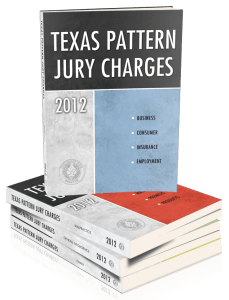 It seems like all I write about anymore is the Court of Criminal Appeals reversing a Court of Appeals case and siding with the State. Well, this post is no different.
It seems like all I write about anymore is the Court of Criminal Appeals reversing a Court of Appeals case and siding with the State. Well, this post is no different.
In Taylor v. State, the appellant was convicted of aggravated sexual assault and sentenced to 70 years confinement and a $10,000 fine for each offense. Much of the testimony at trial, however, related to acts appellant committed while he was a minor. The evidence showed that appellant began sexually abusing a young girl when he was 13 years old and she was 8. The abuse continued for several years, the final occurrence happening when appellant was 20 years old and the victim was 15.
Texas Penal Code Section 8.07(b) provides that unless a juvenile court waives (or has previously waived) jurisdiction and certifies an individual for criminal prosecution, “a person may not be prosecuted for or convicted of any offense committed before reaching 17 years of age.” Accordingly, while evidence was admitted at trial regarding appellant’s acts before he turned 17, he can only be convicted of those acts that occurred after he was 17.
The trial court failed to instruct the jury of this requirement and the jury returned a guilty verdict. On appeal, appellant argued that the jury charges were erroneous because they did not limit the jury’s consideration to evidence of acts committed after he turned 17. The 1st Court of Appeals (Houston) held that the Court was required to instruct the jury that appellant could not be convicted of criminal acts committed before he turned 17, and that appellant was denied a fair and impartial trial as a result. The Court of Appeals reversed the case.
The CCA now reverses the Court of Appeals. It agrees with the Court of Appeals that the instruction should have been given to the jury, even if neither party requested the instruction. But the CCA held, nonetheless, that the error did not deprive appellant of a fair and impartial trial. The CCA states:
Here, the error was the omission of an instruction, rather than the presentation to the jury of an erroneous instruction…[T]he jury in this case could have convicted Appellant based upon evidence presented, even if the proper instruction had been given and Appellant’s pre-seventeen acts were disregarded by the jury. The evidence showed an eight-year pattern of escalating sexual abuse of J.G. by Appellant. Appellant turned 17 years old midway through the abusive period, meaning that he is subject to prosecution for his conduct beginning on that birthday…and evidence of molestation that occurred after that date was introduced at trial.
So, basically the CCA is saying – “We don’t know from the face of the record exactly which instances of abuse the jury believed, and we can’t say with 100% certainty that they believed any of the instances after appellant was 17, but we know they definitely believed something happened at some time.”
The CCA ultimately concludes that Appellant was not denied a fair and impartial trial. My question is – “How do we know that?” I realize that appellant said he didn’t commit any of the alleged acts and I also realize that the jury, by their verdict, believed that he did. But how do we know that the jury didn’t conclude that the appellant was guilty of only those acts that occurred when he was a minor? We don’t.


 It’s been my experience that folks with mental retardation can be painfully honest, really. I mean, it’s like a little kid who looks at somebody and says in the supermarket, ‘You’re really old,’ or, you know, whatever little kids do.
It’s been my experience that folks with mental retardation can be painfully honest, really. I mean, it’s like a little kid who looks at somebody and says in the supermarket, ‘You’re really old,’ or, you know, whatever little kids do.





